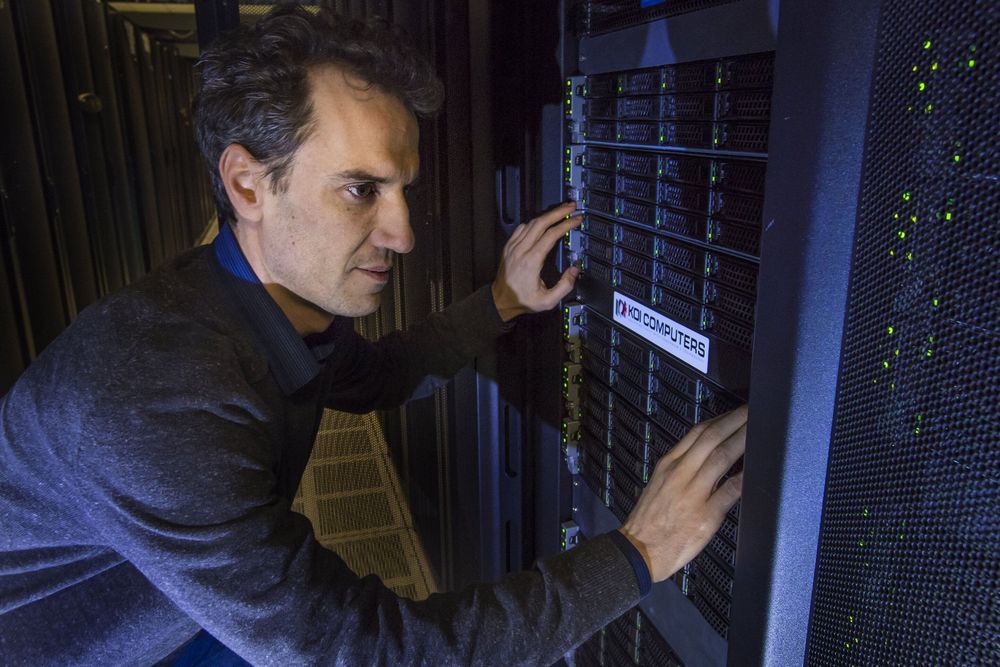High-performance computing (HPC)—the use of supercomputers and parallel processing techniques to solve large computational problems—is of great use in the scientific community. For example, scientists at the U.S. Department of Energy’s (DOE) Brookhaven National Laboratory rely on HPC to analyze the data they collect at the large-scale experimental facilities on site and to model complex processes that would be too expensive or impossible to demonstrate experimentally.
Modern science applications, such as simulating particle interactions, often require a combination of aggregated computing power, high-speed networks for data transfer, large amounts of memory, and high-capacity storage capabilities. Advances in HPC hardware and software are needed to meet these requirements. Computer and computational scientists and mathematicians in Brookhaven Lab’s Computational Science Initiative (CSI) are collaborating with physicists, biologists, and other domain scientists to understand their data analysis needs and provide solutions to accelerate the scientific discovery process.
